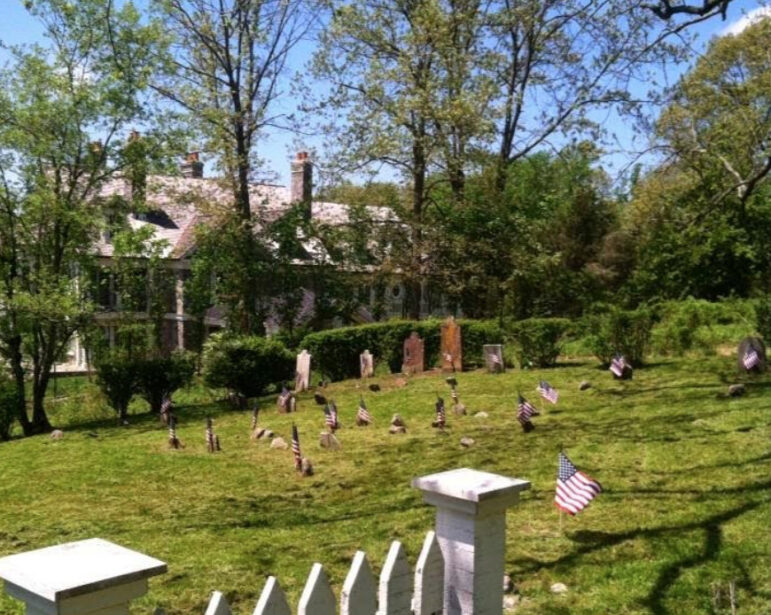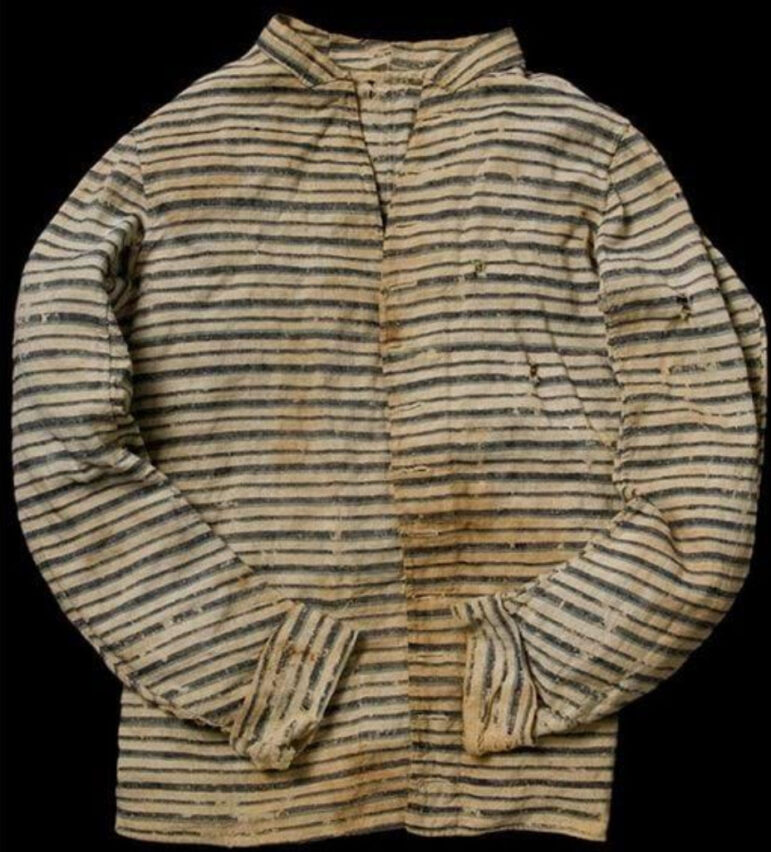Written by Jeffrey Bingham Mead
Jeffrey Bingham Mead – historian, podcaster, lecturer and a descendant of the founders of Greenwich, Connecticut – has announced a new historic preservation initiative to acquire, restore and open to the public one of the Mead family’s ancestral farmsteads in North Greenwich. Mead is calling upon the public to join this effort.
The nearly ten-acre farmstead is located at the intersection of Riversville and Cliffdale roads in the backcountry. The original house dates from circa 1728, making it one of Greenwich’s oldest historic homes. Another, larger main house – built in circa 1808 and a stop on the Underground Railroad- was senselessly demolished along with barns and outbuildings in the early 2000’s.
“We have a seller and listing realtor who are very interested in parting with the property and in its preservation in perpetuity,” said Mead. “The farm is truly one of the town’s most breathtaking and beautiful.”
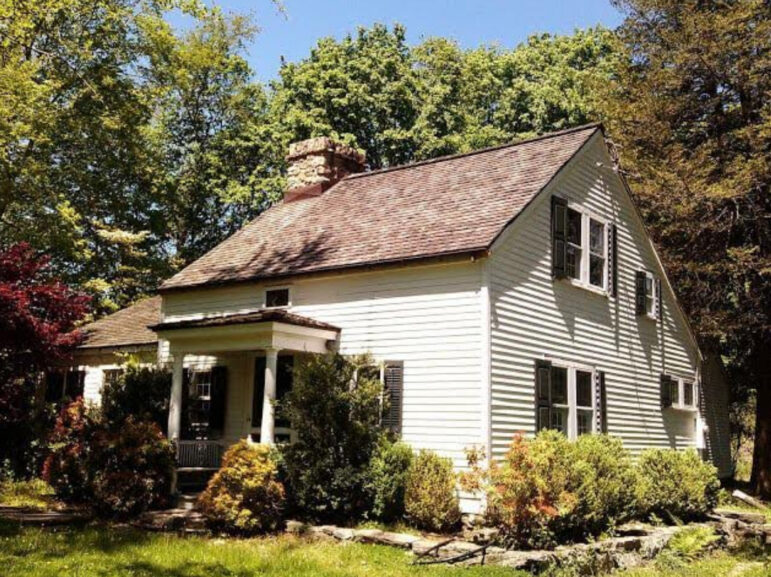
The farm was the scene of a raid during the American Revolutionary War. Obadiah Mead was shot and killed. From an article that was published in 1895:
“…a raid was made upon this place. The son, Obadiah, hid himself in a neighbor’s barn, standing just south of the southeast orchard. Some one of the Tory neighbors, knowing the fact, informed the red-coats who surrounded the barn, threatening to set fire to it and to smoke him out. To escape their clutches, he ran from the barn across the orchard to jump down the rocks to “Dyspepsia Lane.” He was followed, however, by the soldiers. Obadiah, seeing the impossibility of escaping, surrendered. He was then at once shot, the ball passing through his left arm and entering his side, killing him instantly. The coat he wore, showing the bullet holes, which has been so carefully preserved all these years, was inspected by all the company present.”
The coat Obadiah Mead wore was preserved by the family. Today it is kept in the collections of the Greenwich Historical Society. (click here)
“What I envision in part is returning this property into a working farm under a non-profit educational organization,” Mead said. “I’d like to see the old house dating from 1728 turned into a learning center, providing immersive, hands-on experiences focusing on Greenwich’s agricultural history. We’d like to see the restored farmstead as a setting for public events.”
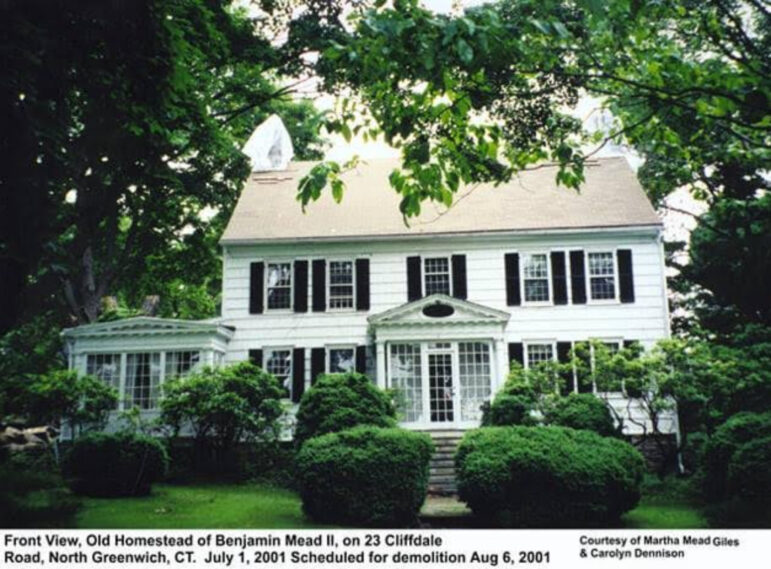
Mead continued, “I applaud Greenwich Country Day School’s acquisition of French Farm on Lake Avenue in 2019 (click here). I’d like to see this farmstead in North Greenwich as the setting for where other schools -private, public, in Greenwich and beyond – could offer similar interdisciplinary educational opportunities without them being required to acquire a farmstead such as this one.” In March, 1995 Mead relocated to Hawaii where, at the Hawaiian Mission Houses Historic Site and Archives, Mead was able to learn more about the farm, its inhabitants and the history of Greenwich from letters and journals penned by 19th century Greenwich residents and Greenwich-born Congregational missionaries to the Hawaiian Islands. Since then, Mead has been going back and forth between Greenwich, Honolulu and other locales in the Asia-Pacific. Transcripts of those letters and journals are on-file in the Greenwich Historical Society’s archives. (click here).
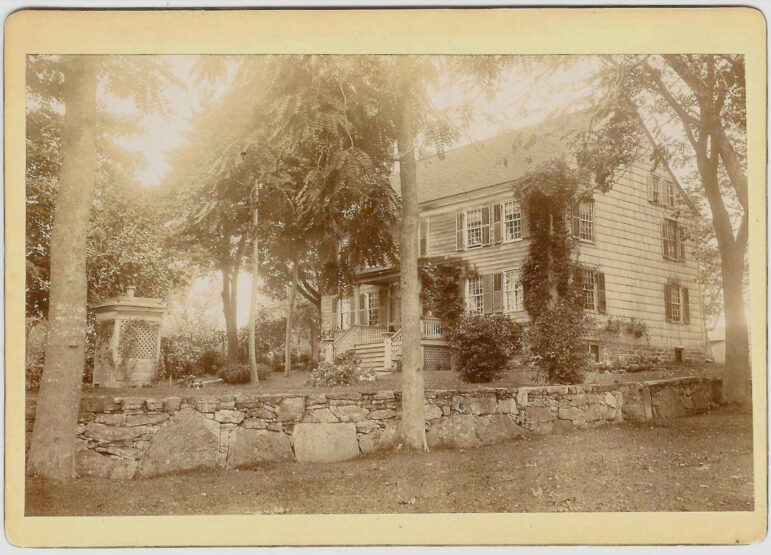
One of the last of the prominent Mead family members to own the farm was Solomon Stoddard Mead. He was a well-known stockman who boarded horses on the farm for wealthy New Yorkers. After 1911, the farm became a “summer place for such well-known persons as Walter Huston and J.C. Penney.
A large main house built in circa 1808 once prominently occupied the corner closest to the Riversville Road and Cliffdale Road intersection. It was demolished in the early 2000s. “To this day, the destruction of that house was one of the most senseless demolitions in Greenwich’s history,” Mead said. “We believe it may have been a house on the Underground Railroad; North Greenwich was a center of abolitionism. I’d like to see a replica of that remarkable home built on the same spot.”
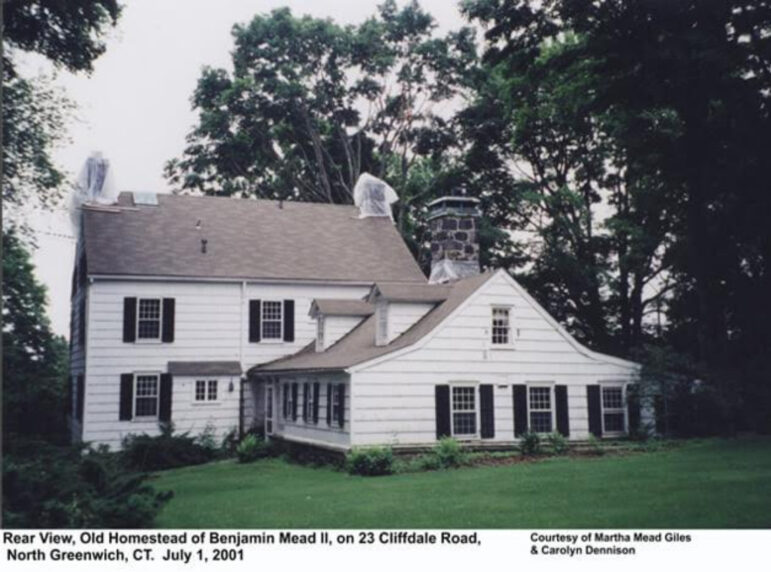
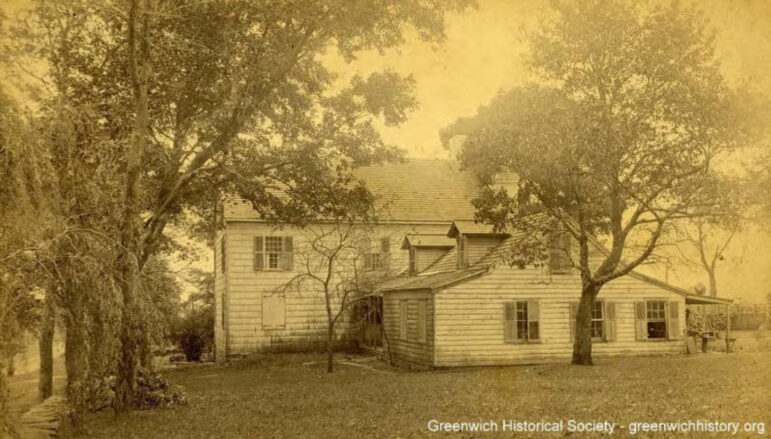
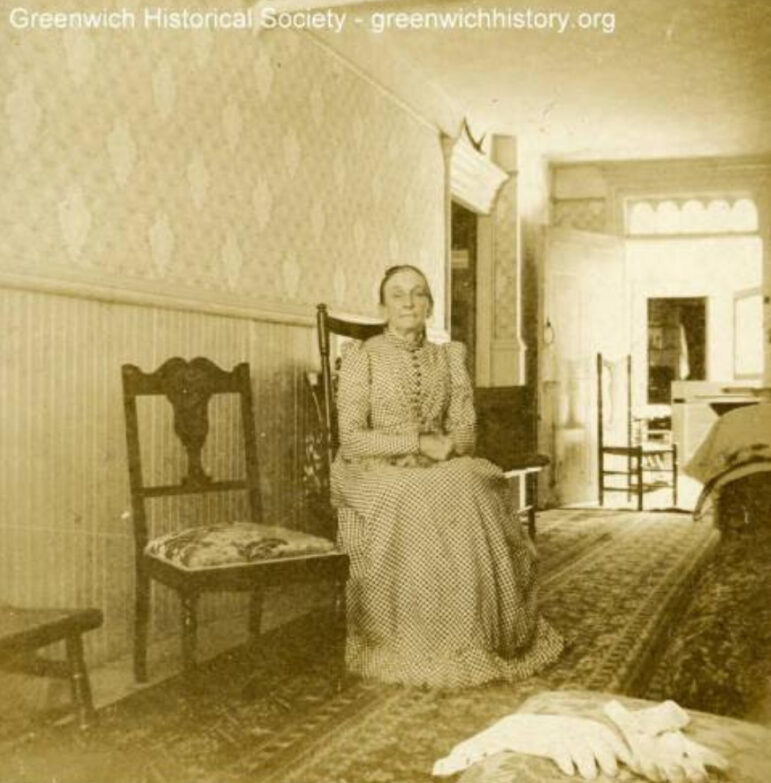
The farmstead also includes an ancestral Mead family cemetery.
Lost for decades, Mr. Mead with the assistance of two daughters of one of the caretakers when the family owned the farm, rediscovered the cemetery in July, 1989, leading to the establishment by the family of The Historic Mead Family Burying Grounds Association, which has continued to maintain the site.
“What envision is a working farmstead that combines the best of the Greenwich Historical Society, the Greenwich Audubon, Greenwich Land Trust in a setting that is truly extraordinary. I and others who grew up here hold fond memories, the kind that I’d like to extend to our town’s newcomers,” Mead said. “I’m an avid fan of Eri Sloane, the writer and artist who did so much to remind all Americans of the value of learning from our past and cherishing our culture.
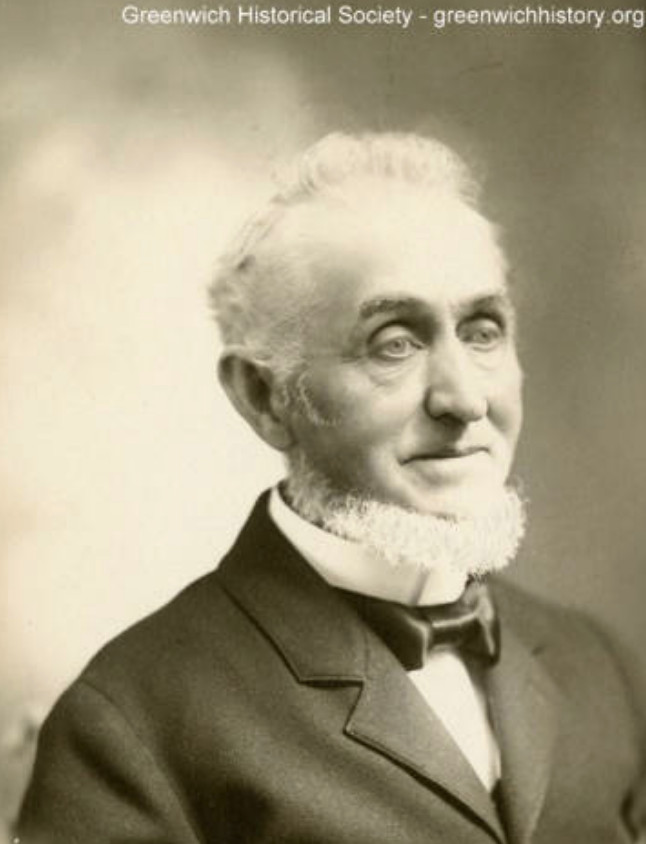
As he wrote: “Farm life offers the complete satisfaction of knowing that each day’s work has been truly productive, a joy scarce in present times. Yet strangely enough, the early American farmer’s greatest satisfaction came not from his daily chores, but in his ability to make provisions for the future and an awareness of his part in fashioning the nation to come. He equipped his home with far heavier foundations than were necessary. He built his barn to last for centuries and he laid a rail fence to survive ten generations. He built stone walls that have lasted so long that they are now a permanent part of the landscape. None of these things are done now, nor do we often consider doing them.”
“I cannot accomplish this alone. We’ve much work to do, much to learn and much to share with our neighbors in a setting that is truly remarkable with a bright future available to all.”
Those interested in joining with Mr. Mead and his associates are encouraged to contact him at [email protected].
The property is NOT presently open to the public and available by appointment only through Ginny Hamilton, listing broker:https://www.houlihanlawrence.com/property/469876322/23-cliffdale-road-greenwich-ct-06831
Jeffrey Bingham Mead – historian, podcaster, lecturer and a descendant of the founders of Greenwich, Connecticut- has announced a new historic preservation initiative to acquire, restore and open to the public one of the Mead family’s ancestral farmsteads in North Greenwich. Mead is calling upon the public to join this effort.
